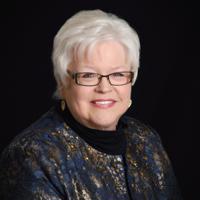The Ever-Evolving and Developing Singer’s Voice Across the Lifespan
Tuesday 14th January 2025, 2:00 PM - 4:00 PM (London Time)
At every age vocal function is dependent upon how the body is progressively and constantly changing. Growth and development directly impact the singing voice. A deeper understanding of chronological development over the span of a lifetime offers an informed perspective for optimal, strategic, and realistic expectations for vocal production at each and every age.
The twenty-first century has been an exciting time as voice science and its application in the voice studio is more accessible than ever. Acoustics, anatomy, the mind, different styles and genres have broadened our perspective. New developments signal that more and more teachers will teach students ranging from children to senior adults. NATS recently added Children & Youth categories to their National Student Auditions along with an active “Affinity Group” that meets to talk about teaching these young students. We are also seeing a surge of singers who want to remain musically active into their senior years and come back to the voice studio to rejuvenate their singing. Academic pedagogy courses typically apply well for normal young adult and mature adult voices.
Knowing changing factors throughout our singers’ life spans can help us toward optimal strategies, exercises, approaches, repertoire, and vocal expectations factor in growth and development. As teachers we address breathing, onsets, intonation, sound, vowels, flexibility, range, sensations, musicianship, language, and more. An informed age perspective makes teaching even more fascinating when we factor in the laryngeal, respiratory, and resonance changes that benefit from incremental remapping of one’s singing throughout life. Furthermore, we can know a lot more about the timing of these changes and take that into account as we strategize instruction and realistic expectations for each singer. For the teacher all of this contributes to, and transforms, how effective our teaching is.
Equipped with this information we learn that “normal” varies according to age from our youngest to our oldest singers. This course will span the entirety of singing lives from birth through old age. What a joy it is to have known some of my students from the time they were infants who came to their mother’s lessons, hearing them sing as children, then being their teacher during high school and college. How good it is to assure a college-age adult male that they are not only improving, but they are also growing and those notes in the passaggio that are frustrating have a future. Then sure enough, in a few months they experience a clearer path to the top.
Singers during the years of hormonal stability benefit from factoring in aging. As they approach their 50’s and 60’s they feel those changes. Teachers can help professional and amateur singers understand, accept, and maintain their voices as they age.
Karen Brunssen
Mezzo-soprano, Karen Brunssen is Professor and Co-chair of the Department of Music Performance at Bienen School of Music, Northwestern University.

Attend this course for as little as £22 as part of the Voice Professional Training CPD Award Scheme.
Learn MoreSorry, this is an archived short course...
We have plenty of upcoming short courses coming soon. See details of some of them below or look at the full list of short courses.

Thursday 19th February 2026
1:00 PM - 2:30 PM
Thursday 26th February 2026
1:00 PM - 2:30 PM
(London Time)
Performing Pain: Vocal Health in Emotional Roles!

Louisa Morgan
How connected are acted emotions to our real-life emotions? Are they expressed differently? Do they feel different in the body? This 2-part course with Louisa Morgan looks at the potential impact of acted emotion on vocal health, why we should consider it as voice practitioners, and how to care for our performers needing to work with it.


Tuesday 3rd March 2026
5:00 PM - 7:00 PM
(London Time)
Sex differences in VOICE!

Dr Richard Lissemore
This two-hour workshop, led by performer, articulatory phoneticist, and voice physiologist, Dr. Richard Lissemore, will examine in detail the role that biological sex plays in the perception and pedagogy of singing voices. We'll consider how parameters such as anatomy, physiology, articulation, resonance, and radiated acoustics influence the perceptions and pedagogical decision-making of singing teachers.

Wednesday 4th March 2026
1:00 PM - 2:00 PM
Wednesday 11th March 2026
1:00 PM - 2:00 PM
Wednesday 18th March 2026
1:00 PM - 2:00 PM
Wednesday 25th March 2026
1:00 PM - 2:00 PM
Wednesday 1st April 2026
1:00 PM - 2:00 PM
Wednesday 8th April 2026
1:00 PM - 2:00 PM
(London Time)
Learn to Coach RP and SSBE – a Certificate in Accent Coaching

Louisa Morgan
This six-week course is an opportunity to learn about both Received Pronunciation and Standard Southern British English. Rather than a course in learning how to speak RP/SSBE (there are many brilliant available courses for this already), this course is about learning how to coach it.
